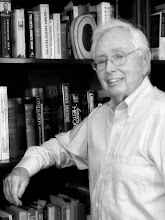Thursday, March 20, 2014
Changes in Psychology
Watching the movie The Book Thief triggered memories that the source book did not because of the use of German expressions. These expressions were familiar to me for a number of reasons.
As a doctoral student at The University of Pennsylvania it required that I pass a German translation test. I had a good background in French from high school and college but had never studied German. There was an introductory course offered but I opted to purchase a text and teach myself enough German to pass the test. I had one great advantage, I grew up in a multigenerational household. My grandmother spoke Yiddish as well as Polish and English, She reverted to Yiddish frequently and I learned to translate but never speak the language. Yiddish is very similar to German.
I was given a page to translate from the writings of Wilhelm Wundt, the father of experimental psychology. Wundt was a student of the eminent physiologist, Helmholtz. Wundt became interested in subjective experiences and began performing research in that area. He founded the first laboratory in experimental psychology in 1879 and termed his approach "Introspectionism." I was very familiar with his research. This knowledge plus my Yiddish background, and my own German textbook review pulled me through the exam.
I doubt whether psychology doctoral students today are asked to translate German passages. But in 1956, when I started at Penn, a doctoral degree was a rigorous academic achievement. The scientific method was a primary focus but Penn as well as other top Psychology Departments had not completely abandoned the old European and particularly German tradition. As an undergraduate Psychology major at Cornell I learned that Wundt's student, Titchner had emigrated to The United States and became a professor at Cornell. I was told he lectured in academic gown. He became Chairman of The American Psychological Association. During the early part of the twentieth century, John Watson at Johns Hopkins was developing behavioral approaches and Sigmund Freud, in Vienna, was invited to lecture at Clark University to describe psychoanalysis. However Titchner kept a tight reign over academic psychology and refused to allow any practical applications of the new science to be discussed at meetings ("Verbotten")
Today, Psychology has branched out into many applied areas. Clinical Psychologists insist upon evidenced-based treatment methods. Universities still endorse excellence in scholarship but the old German academic tradition is long gone.
Subscribe to:
Post Comments (Atom)

No comments:
Post a Comment